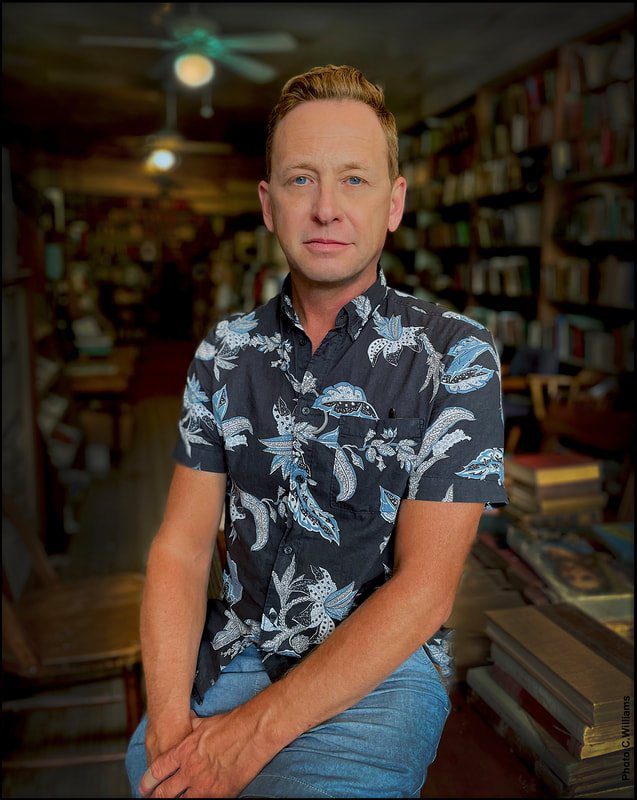On the Road With Paul Theroux

America’s prolific travel writer journeys to a new, exotic region in his latest book Deep South.
 The Mosquito Coast. The Great Railway Bazaar. Hotel Honolulu. The Tao of Travel. Paul Theroux is one of the best known travel writers of our day, taking us to faraway lands in the pages of his fiction and nonfiction, introducing us to unforgettable characters and basically inviting us along for a sometimes bumpy ride. Now, for the first time, the American Book Award nominee ventures South for his tenth travel book. After spending 50 years crossing the globe, Theroux finds a paradoxical place, full of incomparable music, unparalleled cuisine — and yet also some of the nation’s worst schools, housing and unemployment rates — in Deep South.
The Mosquito Coast. The Great Railway Bazaar. Hotel Honolulu. The Tao of Travel. Paul Theroux is one of the best known travel writers of our day, taking us to faraway lands in the pages of his fiction and nonfiction, introducing us to unforgettable characters and basically inviting us along for a sometimes bumpy ride. Now, for the first time, the American Book Award nominee ventures South for his tenth travel book. After spending 50 years crossing the globe, Theroux finds a paradoxical place, full of incomparable music, unparalleled cuisine — and yet also some of the nation’s worst schools, housing and unemployment rates — in Deep South.
On road trips spanning four seasons, winding along rural highways, Theroux visits gun shows and small-town churches, laborers in Arkansas and parts of Mississippi where they still call the farm up the road “the plantation.” He talks to mayors and social workers, writers and reverends, the working poor and farming families — the unsung heroes of the South, the people who, despite it all, never left, and also those who returned home to rebuild a place they could never live without.
After writing 10 travel books over the course of your career, what made you decide to finally venture South?
 The world I’ve known as a traveler has changed, in some cases radically. China today does not in the least resemble the China I first saw in 1980, and India is in general more prosperous, Vietnam an utterly different place from the embattled country I saw in 1973. And in this time, the USA has changed, too. So, when in my last book on Africa, The Last Train to Zona Verde, I asked myself in the title of one chapter “What Am I Doing Here?” and thought, ‘I must travel in the Deep South as I have elsewhere, slowly, appreciatively, in a spirit of discovery.’
The world I’ve known as a traveler has changed, in some cases radically. China today does not in the least resemble the China I first saw in 1980, and India is in general more prosperous, Vietnam an utterly different place from the embattled country I saw in 1973. And in this time, the USA has changed, too. So, when in my last book on Africa, The Last Train to Zona Verde, I asked myself in the title of one chapter “What Am I Doing Here?” and thought, ‘I must travel in the Deep South as I have elsewhere, slowly, appreciatively, in a spirit of discovery.’
Your book is divided up by season. We often say there are only two seasons in the Deep South: hurricane and football, because our weather doesn’t change that much. What differences did you notice from fall to summer?
Southerners might say that — It’s a good line! But the reality is different. The heat is well-known, but fall is beautiful, with welcome coolness. I was very cold in the winter in the Delta, and springtime with redbud and magnolia is magnificent. The seasons are less distinct than in the North, but they leave an impression. Add to this the wild weather — high winds, tornadoes, drenching rain at times.
You quote Faulkner throughout the book. Are you a longtime fan, and how has his writing influenced the way you see the region?
A longtime reader, less and less of a fan, though I am still an admirer of his masterpieces. His life has begun to interest me as much as his writing, the two sides of his career — the innovative novelist, the dedicated and conventional screenwriter. He is a paradoxical figure, so ambivalent at the time of the Civil Rights Movement, but a traveler in the South must know his work.
“Road candy” is the way you sum up the pleasures of driving through the Deep South. Did you have a favorite roadside site, attraction or person you met along the way?
Too many to list, which is why people like me write books. Look at the wonderful folks I met, the preachers, Rev. Earnest Palmer in Tuscaloosa and Rev. Johnson in Sycamore South Carolina, the great reader Randall Curb in Greensboro, Alabama. Some of my most enlightening times were sitting in Eugene Lyles’ barbershop in Greensboro, listening to his stories. I met one of my writing heroes, Charles Portis, in Little Rock. I loved my trip — and the catfish at Lottie’s in Marion — and hated when it ended.
You write that “driving South, I became a traveler again in ways I’d forgotten.” How does the South compare to your more exotic travels to places like Hawaii, Thailand, Patagonia, Africa, etc.?
In my own car, going anywhere I wished, stopping whenever I liked, on good roads mostly, returning again and again, complete freedom, great people, lovely landscapes — nothing like it anywhere in the world.
You have a chapter titled “The Fantastications of Southern Fiction.” You say you’re not a fan of Harper Lee’s solitary and overpraised book, but which authors and works do you find depict the South best?
Faulkner, of course, but his South no longer exists, in spite of what people say. Flannery O’Connor and Mary Ward Brown and many others. But what I feel the South lacks is someone telling the story of today: the dead town, abandoned by industry, the Wal-Mart on the bypass road, the Piggly Wiggly and the pawnshops, the overlooked South, the new tensions. All of this awaiting a chronicler.
What perceptions of the South did you start your journey with and how did those change over the course of your travels?
I set off in early fall from Massachusetts looking for sunshine, and perhaps a friend. I had no preconceptions. I found new landscapes, an America that was new and fascinating to me, and many friends. One of the happiest trips I have taken, in the sense that I made many personal discoveries — much worth writing about.
Photos by Steve McCurry.





